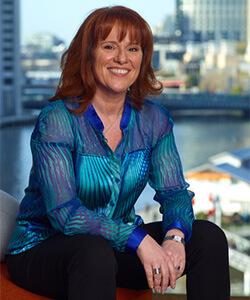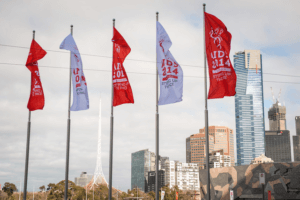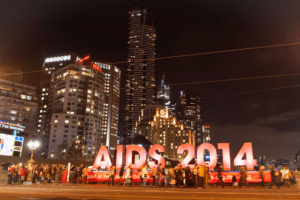#ThoughtLeadership
Melbourne Convention Bureau chief Karen Bolinger relies on ‘rock stars’ to bring in the events that make a big impact.

Karen Bolinger
At the Melbourne Convention Bureau (MCB) we’re in a state of excitement following the opening last month of a 20,000 sqm expansion to the Melbourne Convention and Exhibition Centre (MCEC). The increased capacity for hosting events means we can bid for larger events, more often. But first, we need to win bids.
To help us do this, we actively source professors, academics, researchers, and leaders to become bid ambassadors, and induct them into the Club Melbourne Ambassador Program (CMAP). The CMAP unites and supports leaders from various industries to secure and host international conferences in the state of Victoria.
Owned and led by MCEC with support and collaboration from MCB, the CMAP harnesses the passion of Melbourne’s elite thinkers and leaders, or as I like to call them, rock stars.
Attracting tens of thousands of international visitors to Melbourne for conferences so far, Club Melbourne ambassadors have played a direct role in boosting Victoria’s economy, showcasing our expertise in fields such as science, medicine, technology, business, and education to the world; creating new global alliances; stimulating trade; and leaving a legacy of new opportunities for both research and business.
In 2014 the 20th International AIDS Conference was held in Melbourne, which to this day is still the largest health conference ever held in the city. Four years down the track we are still talking about it. Why? Because even today we are still feeling its impact.
This is largely due to the role of a Club Melbourne ambassador, Professor Sharon Lewin, who led the bid at the time.
 AIDS 2014 was the first ever international AIDS Conference held in Australia, and it was the expertise and input from Professor Lewin that enabled us to secure the event. While it generated more than AU$80 million (US$59 million) in economic contribution for the state, the social impacts are far greater.
AIDS 2014 was the first ever international AIDS Conference held in Australia, and it was the expertise and input from Professor Lewin that enabled us to secure the event. While it generated more than AU$80 million (US$59 million) in economic contribution for the state, the social impacts are far greater.
The AIDS conference resulted in a change in the national visa policy for people with HIV. It raised the profile of AIDS and reduced the stigma associated with it. It resulted in the Melbourne Declaration and the AIDS 2014 Legacy Statement, which saw Australia’s health ministers commit to the elimination of new HIV infections by 2020. It mobilised community groups and fostered education across Melbourne and within regional Victoria, while new legislation was established to decriminalise the transmission of HIV.
The conference brought great visibility to Melbourne’s expertise in HIV research and delivered real action for the HIV and AIDS community. These are big impacts, life changing for many people.
I highlight this conference as it is a shining example of the impact an ambassador can have as a conference bid leader. Without them we could not secure large-scale conferences, and we would not see such impactful, long-term legacies.
Karen Bolinger is Chief Executive Officer of the Melbourne Convention Bureau. She is also a member of the 2018 PCMA APAC Advisory Board.

